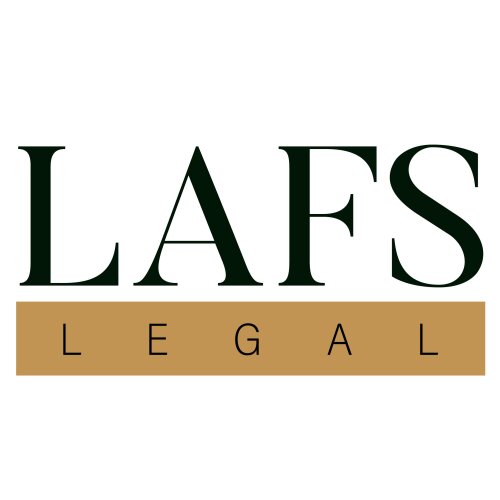ทนายความ การพำนักถาวร ที่ดีที่สุดใน ประเทศไทย
แบ่งปันความต้องการของคุณกับเรา รับการติดต่อจากสำนักงานกฎหมาย
ฟรี ใช้เวลา 2 นาที
หรือปรับแต่งการค้นหาของคุณโดยเลือกเมือง:
รายชื่อทนายความที่ดีที่สุดใน ประเทศไทย
คู่มือกฎหมายเขียนโดย SIAM LEGAL INTERNATIONAL:
- Defamation Laws in Thailand: Criminal Charges and Civil Suits
- The State of Thailand’s Long-Term Resident (LTR) Visa Program in 2025
- The Penalties Of Not Filing Your Income Tax Return As A Foreigner In Thailand
คู่มือกฎหมายเขียนโดย Smart Legal Solutions:
- Main Legal Measures to Protect Foreign Investment in Thailand
- The importance of the geographical indications for the Thai economy
1. เกี่ยวกับกฎหมายการพำนักถาวรในประเทศไทย
กฎหมายหลักที่ควบคุมการเข้าเมืองและการพำนักถาวรในประเทศไทยคือ พระราชบัญญัติคนเข้าเมือง พ.ศ. 2522 พร้อมด้วยการแก้ไขเพิ่มเติม รวมถึงระเบียบข้อบังคับที่ออกตามกฎหมายนี้
วัตถุประสงค์ของการพำนักถาวรคือให้ผู้ที่มีคุณสมบัติเหมาะสมสามารถอาศัยอยู่ในประเทศไทยได้อย่างถาวร โดยไม่จำเป็นต้องขอวีซ่าหรืออนุมัติการพักอาศรมบ่อยครั้ง
การพิจารณาถึงสถานะถาวรมักเป็นไปอย่างรายกรณี โดยพิจารณาจากระยะเวลาพำนัก ความมั่นคงทางการเงินและคุณสมบัติที่เกี่ยวข้อง ทั้งนี้กระบวนการมักใช้เวลาพอสมควรและมีข้อกำหนดเอกสารที่เฉพาะเจาะจง
กองตรวจคนเข้าเมืองระบุว่าการพำนักถาวรเป็นกระบวนการที่พิจารณาแบบรายกรณี โดยต้องตรวจสอบคุณสมบัติและหลักฐานอย่างละเอียด
สำหรับข้อมูลแนวคิดใหม่ที่เกี่ยวกับการพำนักระยะยาว เช่น Long-Term Resident (LTR) ซึ่งเป็นแนวทางดึงดูดผู้มีทักษะและทรัพย์สิน ข้อมูลจะเผยแพร่บนเว็บไซต์ทางการของสำนักงานตรวจคนเข้าเมือง
แหล่งข้อมูลอ้างอิงหลัก ได้แก่ สำนักงานตรวจคนเข้าเมือง (immigration.go.th) และ กระทรวงมหาดไทย (moi.go.th) เพื่อข้อมูลล่าสุดเกี่ยวกับแนวทางและประกาศทางกฎหมาย
2. ทำไมคุณอาจต้องการทนายความ
- กรณีขอถิ่นที่อยู่ถาวรหลังจากพำนักในไทยมานาน ทนายความช่วยรวบรวมเอกสารสภาพการอยู่อาศัยและประเมินสิทธิ์การขอ PR ให้สอดคล้องกับกฎหมายปัจจุบัน
- กรณีแต่งงานกับคนไทย ที่ปรึกษากฎหมายช่วยตรวจเงื่อนไขการสมรสและการพิสูจน์หลักฐานเพื่อพิจารณาสิทธิ์ PR
- กรณีมีบุตรที่เป็นคนไทย ทนายความช่วยยืนยันสิทธิ์และขั้นตอนการขอ PR ในกรณีครอบครัว
- กรณีมีทรัพย์สินหรือการลงทุนที่เข้าข่ายเงื่อนไบ PR ที่ปรึกษากฎหมายช่วยเตรียมเอกสารทางการเงินและแนวทางการยื่น
- กรณีเคยถูกปฏิเสธ PR มาก่อน ทนายความช่วยตรวจสอบเหตุผลการปฏิเสธ ข้อมูลอุทธรณ์ หรือยื่นใหม่
- กรณีต้องการคำแนะนำเรื่องข้อมูลส่วนบุคคลและความมั่นคง เพื่อปกป้องข้อมูลในการยื่นเรื่องและการติดตามสถานะ
ทนายความด้านการพำนักถาวรช่วยเพิ่มความมั่นใจในการเตรียมเอกสาร ตรวจทานคำชี้แจง และนำเสนอข้อโต้แย้งให้สอดคล้องกับแนวปฏิบัติราชการ
3. ภาพรวมกฎหมายท้องถิ่น
พระราชบัญญัติคนเข้าเมือง พ.ศ. 2522 เป็นกฎหมายหลักที่ควบคุมการเข้าออกและการพำนักในประเทศไทย โดยกำหนดประเภทวีซ่าและเงื่อนไขการพำนักต่างๆ
พระราชบัญญัติการทำงานของคนต่างด้าว พ.ศ. 2551 กำหนดเงื่อนไขการจ้างงานและใบอนุญาตทำงานของชาวต่างชาติ ซึ่งมีผลต่อการพำนักระยะยาวเฉพาะกรณีที่เป็นผู้ทำงานในไทย
นอกจากนี้ ยังมีระเบียบข้อบังคับที่ออกโดย สำนักงานตรวจคนเข้าเมือง และ กระทรวงมหาดไทย เพื่อกำหนดรายละเอียดการพำนักถาวรและเงื่อนไขการอยู่ในราชอาณาจักร บทบัญญัติเหล่านี้มีการปรับปรุงเป็นระยะและอ้างอิงในราชกิจจานุเบกษา
อ้างอิงแนวคิดทางกฎหมายและข้อกำหนด: สำนักงานตรวจคนเข้าเมือง, กระทรวงมหาดไทย, ราชกิจจานุเบกษา
4. คำถามที่พบบ่อย
อะไรคือสถานะถาวรในประเทศไทยและใครมีสิทธิ์ได้?
สถานะถาวรคือการอนุญาตให้พำนักอยู่ถาวรได้โดยไม่ต้องต่อวีซ่บ่อยๆ ผู้ที่มีคุณสมบัติเฉพาะ เช่น ครอบครัวไทยหรือผู้มีความสามารถพิเศษอาจมีสิทธิ์ แต่การพิจารณาเป็นรายกรณี
อย่างไรถึงจะเริ่มยื่นขอถิ่นที่อยู่ถาวรได้?
เริ่มจากการประเมินคุณสมบัติ รวบรวมเอกสารหลักฐาน และปรึกษาทนายความเพื่อออกแบบแผนยื่นที่เหมาะกับสถานการณ์ของคุณ
เมื่อไหร่ควรยื่นขอ PR หลังจากพำนักในประเทศ?
ระยะเวลาที่เหมาะสมขึ้นอยู่กับคุณสมบัติและระยะเวลาพำนักจริง ในหลายกรณี ผู้ยื่นต้องมีระยะเวลาพำนักและประวัติการอยู่อาศัยที่สอดคล้องกับข้อกำหนด
ที่ไหนและใครเป็นผู้พิจารณาคำขอ PR?
คำขอ PR มักถูกพิจารณาโดยหน่วยงานที่รับผิดชอบการพำนักของกระทรวงมหาดไทย ร่วมกับหน่วยงานตำรวจตรวจคนเข้าเมือง ซึ่งพิจารณาเป็นรายกรณี
ทำไมการมีทนายความจึงมีความสำคัญ?
ทนายความช่วยตรวจสอบเอกสารหลากหลายประเภท บรรเทาความเสี่ยงในการยื่น และช่วยเตรียมคำชี้แจงเพื่อให้สอดคล้องกับแนวทางราชการ
สามารถยื่น PR ด้วยตนเองได้หรือไม่?
ได้ แต่การยื่นด้วยตนเองอาจทำให้ยากหากไม่มีความชำนาญด้านข้อกำหนดและแนวทางราชการ การมีทนายความช่วยลดข้อผิดพลาดและย้ำความครบถ้วน
ควรเตรียมเอกสารอะไรบ้างล่วงหน้า?
โดยทั่วไปเอกสารส่วนบุคคล เช่น พาสปอร์ต หนังสือรับรองการทำงาน เอกสารรับรองรายได้ และหลักฐานที่แสดงความสัมพันธ์ครอบครัวหรือทรัพย์สิน
อะไรคือความแตกต่างระหว่าง PR กับวีซ่ชั่วคราว?
PR มอบสิทธิพำนักถาวรโดยไม่ต้องต่ออายุบ่อย ขณะที่วีซ่าชั่วคราวอนุญาตให้อยู่ได้ตามระยะเวลาที่ระบุและต้องต่ออายุ
ระยะเวลในการพิจารณา PR โดยทั่วไปใช้เวลานานแค่ไหน?
โดยทั่วไปอาจใช้หลายเดือนถึงหลายปี ขึ้นกับคุณสมบัติเอกสารและกระบวนการตรวจสอบของหน่วยงานที่เกี่ยวข้อง
หากถูกปฏิเสธ PR ควรทำอย่างไร?
ควรปรึกษาทนายความเพื่อประเมินเหตุผลปฏิเสธและพิจารณายื่นอุทธรณ์หรือยื่นใหม่ โดยมีเอกสารเสริมที่จำเป็น
คุณสมบัติเรื่องเงินทุนและทรัพย์สินมีบทบาทอย่างไร?
ทรัพย์สินและแหล่งทุนอาจช่วยเพิ่มความเชื่อมั่นต่อการพิจารณา แต่ควรตรงตามเงื่อนไขที่กระทรวงกำหนดและผ่านการตรวจสอบ
สามารถเปลี่ยนสถานะจากการทำงานเป็น PR ได้หรือไม่?
ได้ หากคุณมีคุณสมบัติด้านการอยู่ร่วมกับครอบครัวหรือผู้มีคุณสมบัติอื่น ตามเงื่อนไขที่ระบุในกฎหมายและระเบียบข้อบังคับ
อะไรคือแนวทางที่ทำให้คำขอ PR มีโอกาสผ่านมากขึ้น?
เตรียมเอกสารครบถ้วน ตรวจสอบความสอดคล้องกับกฎหมาย และมีข้อพิสูจน์ความมั่นคงทางการเงินและการบูรณาการสังคมไทย
5. ทรัพยากรเพิ่มเติม
ด้านล่างนี้คือแหล่งข้อมูลทางการที่คุณสามารถตรวจสอบเพื่อความถูกต้องและอัปเดตล่าสุด
- สำนักงานตรวจคนเข้าเมือง กระทรวงมหาดไทย - คู่มือ คำถามที่พบบ่อย และประกาศล่าสุดเกี่ยวกับการพำนัก
- กระทรวงมหาดไทย - นโยบายและระเบียบที่เกี่ยวข้องกับการพำนักถาวร
- ราชกิจจานุเบกษา - ราชกิจจาฯ สำหรับประกาศ กฎหมาย และระเบียบที่เกี่ยวข้อง
6. ขั้นตอนถัดไป
- ประเมินสถานะของคุณและเป้าหมายการพำนักถาวร เพื่อให้ทราบแนวทางที่เหมาะสม
- ค้นหาทนายความหรือที่ปรึกษากฎหมายด้านการพำนักถาวรที่มีประสบการณ์ในพื้นที่นี้
- นัดปรึกษาเบื้องต้น พร้อมนำเอกสารส่วนบุคคลและหลักฐานการพำนักมาให้ตรวจ
- หารือเรื่องค่าใช้จ่าย สัญญาและแผนงาน พร้อมขอประมาณการเวลาประเมินสถานะ
- จัดเตรียมเอกสารให้ครบถ้วนตามข้อกำหนด และทำสำเนาเอกสารที่จำเป็นทั้งหมด
- ยื่นคำขอพร้อมเอกสารและติดตามสถานะ ประสานงานกับทนายความเพื่ออัปเดตความคืบหน้า
- หากมีข้อสั่งหรือการขอข้อมูลเพิ่มเติม ให้ดำเนินการตอบสนองโดยเร็วและครบถ้วน
Lawzana ช่วยคุณค้นหาทนายความและสำนักงานกฎหมายที่ดีที่สุด ใน ประเทศไทย ผ่านรายชื่อผู้เชี่ยวชาญด้านกฎหมายที่มีคุณสมบัติเหมาะสมที่คัดสรรและตรวจสอบล่วงหน้า แพลตฟอร์มของเรานำเสนอการจัดอันดับและโปรไฟล์โดยละเอียดของทนายความและสำนักงานกฎหมาย ช่วยให้คุณเปรียบเทียบตามสาขากฎหมาย รวมถึง การพำนักถาวร ประสบการณ์ และความคิดเห็นของลูกค้า
แต่ละโปรไฟล์ประกอบด้วยคำอธิบายเกี่ยวกับสาขากฎหมายของสำนักงาน รีวิวจากลูกค้า สมาชิกในทีมและหุ้นส่วน ปีที่ก่อตั้ง ภาษาที่พูด ที่ตั้งสำนักงาน ข้อมูลการติดต่อ การมีตัวตนบนโซเชียลมีเดีย และบทความหรือแหล่งข้อมูลที่เผยแพร่ สำนักงานส่วนใหญ่บนแพลตฟอร์มของเราพูดภาษาอังกฤษและมีประสบการณ์ทั้งในเรื่องกฎหมายท้องถิ่นและระหว่างประเทศ
ขอใบเสนอราคาจากสำนักงานกฎหมายชั้นนำ ใน ประเทศไทย — รวดเร็ว ปลอดภัย และไม่ยุ่งยาก
ข้อจำกัดความรับผิดชอบ:
ข้อมูลที่ให้ไว้ในหน้านี้มีวัตถุประสงค์เพื่อเป็นข้อมูลทั่วไปเท่านั้นและไม่ถือเป็นคำแนะนำทางกฎหมาย แม้ว่าเราจะพยายามตรวจสอบความถูกต้องและความเกี่ยวข้องของเนื้อหา แต่ข้อมูลทางกฎหมายอาจเปลี่ยนแปลงได้ตามกาลเวลา และการตีความกฎหมายอาจแตกต่างกันไป คุณควรปรึกษาผู้เชี่ยวชาญด้านกฎหมายที่มีคุณสมบัติเหมาะสมเพื่อขอคำแนะนำเฉพาะสำหรับสถานการณ์ของคุณเสมอ
เราปฏิเสธความรับผิดทั้งหมดสำหรับการกระทำที่ทำหรือไม่ทำตามเนื้อหาในหน้านี้ หากคุณเชื่อว่าข้อมูลใดไม่ถูกต้องหรือล้าสมัย โปรด contact us และเราจะตรวจสอบและแก้ไขตามความเหมาะสม
เรียกดูสำนักงานกฎหมาย การพำนักถาวร ตามเมืองใน ประเทศไทย
ปรับแต่งการค้นหาของคุณโดยเลือกเมือง

















